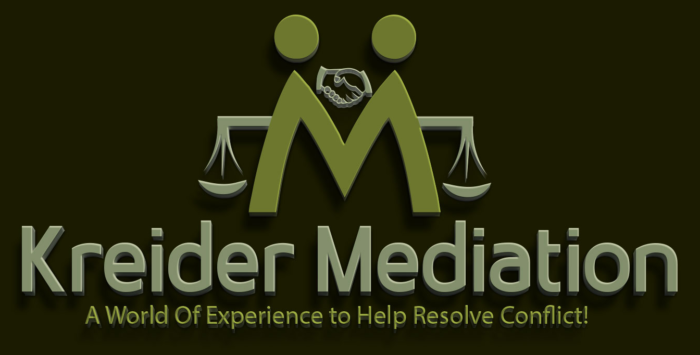Uncategorized
Don’t Say “I Understand” as a Mediator
I recently had a very insightful student from my 40 Hour Basic Mediation Course explain to me why using the phrase “I understand” is not always beneficial. This made me reflect on the way I conduct my mediations and even when using that phrase in normal conversation. Here is my perspective…
While saying “I understand” to someone who has suffered a loss is often well intentioned, aiming to convey empathy and support, it can sometimes have unintended negative consequences. This phrase, though commonly used, might not always be the best choice in providing comfort to the grieving. Here are several reasons why it might not be a good idea to say “I understand” to someone who has suffered a loss:
Note: What is considered loss? Death of a loved one is not always the only way to consider a loss. Loss of Health, Loss of a Relationship, Loss of Employment, Loss of Money etc. could be considered a loss.
Here are some reasons why saying “I understand” can backfire.
- Assumption of Shared Experience
Saying “I understand” can unintentionally imply that you fully grasp the depth and nuance of the individual’s personal experience of loss, which is often not the case. Grief is deeply personal and unique to each individual, shaped by their relationship with the person they’ve lost, their personal history, and their coping mechanisms. This assumption can make the bereaved feel as though their unique experience is being generalized or minimized.
- Potential to Invalidate Feelings
For someone in the depths of grief, hearing “I understand” from someone who may not have experienced a similar loss (or even if they have) can feel dismissive. It might seem to the grieving person as though their complex, painful emotions are being simplified or that their experience is being equated with another’s, potentially leading them to feel misunderstood or isolated.
- Creates Distance Instead of Closeness
While the intention behind saying “I understand” is often to create a sense of closeness and empathy, it can sometimes have the opposite effect. The bereaved might feel that this phrase is a conversational closure, discouraging further expression of their feelings. It can come across as a way to move the conversation forward rather than an invitation to share more deeply.
- Lack of Authenticity
If the person saying “I understand” has not experienced a similar loss, the statement might lack authenticity. This can be sensed by the grieving individual, making the attempt at empathy feel hollow or insincere. Authentic connection in times of grief is crucial, and perceived inauthenticity can widen the emotional gap between the bereaved and those trying to support them.
- It May Overlook the Need for Listening
Grieving individuals often need to be heard more than anything else. Saying “I understand” can sometimes signal an end to listening, suggesting that the speaker already knows all they need to know about the bereaved person’s feelings. This overlooks the bereaved’s need to talk about their loss, to process their grief through storytelling, and to feel that their words are being received with openness and without judgment.
- Encourages Comparison of Grief
Even when coming from a place of genuine empathy, saying “I understand” can unintentionally encourage comparisons of grief, leading to feelings of discomfort or a sense of competition in suffering. Each person’s grief journey is distinct, and comparisons can detract from the individual’s need to express and process their own unique emotions and experiences.
Alternatives to Saying “I Understand” in Mediation
To foster a more effective and empathetic communication environment in mediation, consider these alternatives:
- Reflect and Validate: Instead of saying “I understand,” try reflecting back what you’ve heard in a way that validates the other person’s experience. For example, “It sounds like you’re feeling frustrated because…” This approach shows active listening without presuming full understanding.
- Ask Open-Ended Questions: Encourage deeper exploration of the issues and emotions at play by asking open-ended questions. This demonstrates genuine interest in understanding the other party’s perspective without assuming you already do.
- Express Empathy Without Assuming: You can express empathy and support without claiming to understand fully. Phrases like “That sounds challenging,” or “I can see how that situation could be difficult,” acknowledge the other’s feelings without presuming you share the same experience.
- Focus on Needs and Interests: Shift the conversation from positions and general understandings to the underlying needs and interests. This can help identify common ground and areas for potential agreement.
In mediation, the goal is to facilitate understanding and agreement between parties through effective communication. By avoiding presumptive statements like “I understand” and instead focusing on listening, validating, and exploring issues deeply, mediators and participants can create a more open and productive environment conducive to resolution.
Conclusion
While the intention behind saying “I understand” is usually to convey empathy and support, it’s important to be mindful of its potential to be received in ways we do not intend. Alternatives that encourage open communication and genuine connection might include phrases like “I’m here for you,” “I’m so sorry for your loss,” or simply, “Would you like to talk about it?” These responses can provide space for the grieving person to share their feelings without feeling misunderstood or minimized, fostering a more authentic and supportive environment for healing.


Great explanation and alternatives to communicate or express empathy for others!
Thanks, but I can’t take all the credit. Rich inspired the conversation.